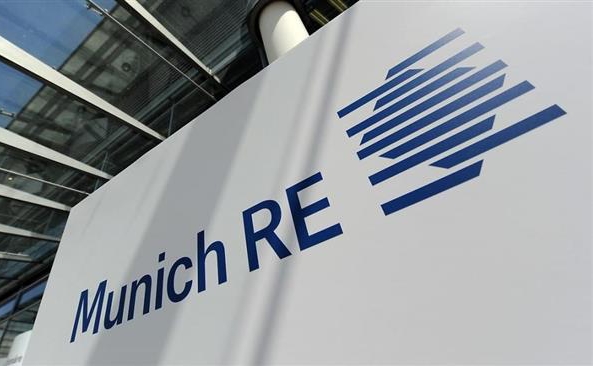Global reinsurance giant Munich Re has announced its results for the second-quarter and first-half of 2018, revealing a larger than expected hit from major man-made losses that dented the performance of its property casualty reinsurance segment.
 Overall, the reinsurer has reported Q2 profit of €728 million and H1 2018 profit of €1.555 billion, compared with €733 million and €1.29 billion in 2017, respectively.
Overall, the reinsurer has reported Q2 profit of €728 million and H1 2018 profit of €1.555 billion, compared with €733 million and €1.29 billion in 2017, respectively.
The firm’s reinsurance segment contributed €620 million to the consolidated result in Q2, while gross written premiums (GWP) declined by 9.5% to €6.932 billion. Munich Re notes that a steep decline in premium volume in life and health business was only partially offset by an increase in premiums in its property casualty unit.
Munich Re’s property casualty reinsurance segment contributed €335 million in Q2 2018, which is a decline from the €517 million recorded a year earlier. The reinsurer attributes this to a significant increase in major man-made losses and higher basic losses. At the same time, and despite negative currency translation effects, the unit witnessed premium growth to €4.623 billion.
The combined ratio for the property casualty segment reached 102% in Q2, compared with 93.9% a year earlier.
As noted by Munich Re, major man-made losses increased significantly for the firm in the period, with overall expenditure for major losses over €10 million each hitting €605 million, which the firm says is equivalent to 13.3% of net earned premium and above the average expected 12%.
Major man-made losses totalled €501 million in the period, which is an increase from the €187 million recorded a year earlier, and, Munich Re notes that the most expensive individual loss was by far a result of structural damage to a hydroelectric power station in Colombia (the Ituango dam loss).
Major losses from natural catastrophes totalled €104 million in the period, compared with €66 million a year earlier.
As a result of claims notifications for basic losses from prior years staying below expected overall levels, Munich Re was able to release reserves of roughly €200 million, which, means the firm has released reserves totalling €380 million, or roughly 4.3% of net earned premiums, for the first-half of the year.
Elsewhere in its reinsurance segment, and as noted earlier, premium income in life and health fell to €2.3 billion, driven by terminations and the restructuring of large-volume treaties.
Interestingly, the reinsurer also commented on its experience at the July 1st renewals, stating that developments that had started to be observed in prior renewals continued, with rate increases being seen in loss-affected regions, but remaining stable elsewhere as a result of an abundance of available capital.
Overall, Munich Re saw price increases of 0.9% at the July renewals, excluding the effects of higher interest rates. At the same time, premium volume increased by 42% to €3.3 billion at the July 1st renewals, which the reinsurer attributes to an attractive large-volume treaty in Australia, alongside profitable growth of reinsurance quota share business in the U.S.
The July 1st renewals are typically focused on property casualty and the majority of North American business is likely to include property and catastrophe exposures. This could suggest that Munich Re has increased its exposure to peril regions in the U.S., but the improved pricing suggests this is worthwhile for the firm, underlined by the significant growth in premium volume.
Looking forward, and in light of its H1 2018 results, Munich Re still expects to post gross premiums of between €46 billion and €49 billion for 2018, with an expected consolidated result in the range of €2.1 billion – €2.5 billion.
“With a half-year profit of €1.6bn, we are most certainly on track to reach our profit target of €2.1–2.5bn for the year as a whole. We also made progress with the implementation of our strategy: Munich Re is becoming more profitable, more digital and leaner,” said Joachim Wenning, Chairman of the Board of Management, Munich Re.


